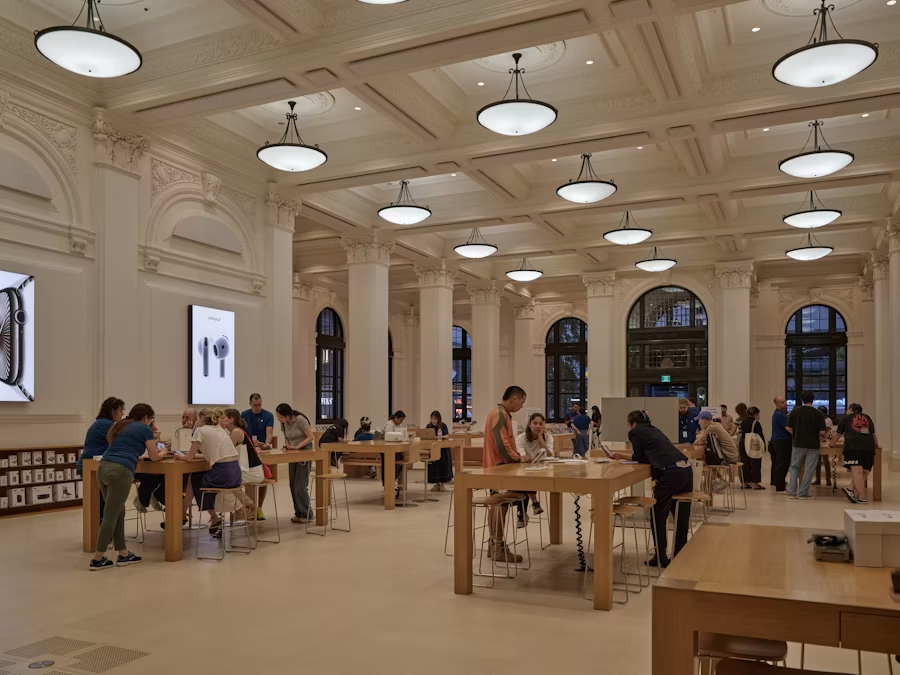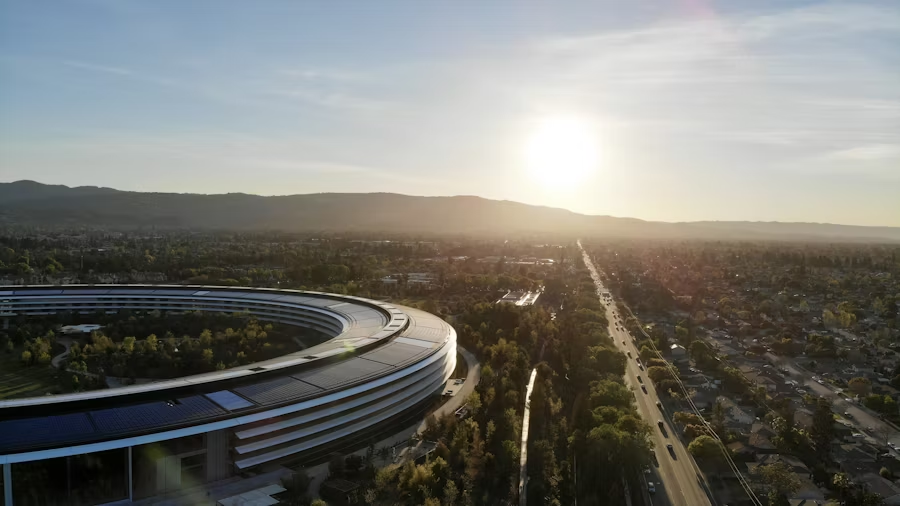Has Apple become more or less innovative in recent years? … Steve Jobs dazzled the world with new ideas, iMacs and iPods, iPads and iPhones … but Tim Cook made the Apple ecosystem 10 times more valuable
January 10, 2025

Apple has long held the mantle of one of the world’s most innovative companies. It reinvented music with the iPod, reshaped phones with the iPhone, and further back redefined computing with the iPad and MacBook. But in recent years, many people have asked “Has Apple become more or less innovative?”
This isn’t just a question of whether Apple still makes exciting products. It’s also about how innovation evolves within a mature company, what role leadership plays, and how success is measured—through products, performance, or impact.
A shift in leadership and innovation philosophy
To assess Apple’s innovation today, an obvious place to start is to compare the company’s two iconic leaders: Steve Jobs and Tim Cook.
Under Steve Jobs (CEO 1977–1985, and 1997 to 2011), Apple was a company built on bold, disruptive leaps. Jobs spearheaded revolutionary products that created entirely new categories—the iPhone, iPad, iPod, iTunes Store, and MacBook Air. His leadership was marked by risk-taking, an obsession with design and user experience, and a relentless pursuit of perfection. Innovation was emotional, intuitive, and often theatrical.
Tim Cook (CEO 2011-today), by contrast, has adopted a more strategic, systems-oriented approach. Since becoming CEO in 2011, Cook has transformed Apple from a product-centric innovator into a platform and ecosystem powerhouse. He has scaled operations globally, leaned into services, emphasized integration and privacy, and quietly built new engines of growth—often without the fanfare that defined Jobs’ era.
The result is a company whose innovation feels less radical but more sustainable, focused on depth, scale, and strategic refinement.

Recent innovations in products and technology
Though critics argue Apple has become more conservative, the company has introduced significant innovations across hardware, software, and services. These include:
1. Apple Silicon (M1, M2, M3 chips)
One of the most important technical achievements in Apple’s history is the shift to Apple-designed processors, replacing Intel chips in Macs. The M1 chip, launched in 2020, delivered massive gains in performance and battery life. This gave Apple unmatched control over its hardware–software integration and set new industry benchmarks.
2. Apple Watch and Health Tech
Launched in 2015, the Apple Watch has become the most popular smartwatch in the world and a leader in wearable health technology. With ECG, blood oxygen monitoring, fall detection, and fitness tracking, it’s positioned Apple at the intersection of technology and preventative healthcare—a growing global priority.
3. AirPods and Audio Ecosystem
AirPods have become a cultural and commercial phenomenon, blending design, utility, and deep integration into Apple’s ecosystem. With innovations like spatial audio and seamless device switching, they’ve reshaped expectations in wireless audio.
4. Apple Services
Perhaps the most strategic innovation under Cook has been Apple’s expansion into services. With offerings like iCloud, Apple Music, Apple TV+, News+, Fitness+, and Apple Pay, services revenue now exceeds $100 billion annually. This shift has transformed Apple from a hardware company into a recurring-revenue platform.
5. Apple Vision Pro and Spatial Computing
In 2024, Apple entered the mixed reality space with the Apple Vision Pro, a spatial computing headset that represents a long-term bet on immersive computing. While early adoption is niche, the Vision Pro introduces groundbreaking UI concepts—like eye tracking and hand gestures—and could evolve into a mainstream product like the Apple Watch.
6. Privacy and On-Device AI
Apple has innovated in privacy-preserving artificial intelligence, embedding machine learning into features like photo curation, voice recognition, and handwriting. Its approach contrasts with cloud-based AI models by focusing on on-device intelligence, efficiency, and security—especially relevant in today’s data-conscious world.
Why has Apple appeared less innovative?
Despite these achievements, Apple has also drawn criticism for what seems like innovation inertia in some core areas:
-
iPhone updates have become iterative, with new versions offering modest improvements in camera quality, chip speed, and battery life.
-
Apple has been slow to adopt generative AI compared to competitors like Microsoft, Google, and OpenAI. While deeper integration is expected in iOS 18, the company is playing catch-up in the AI arms race.
-
Apple has resisted trends like foldable screens, ultra-fast charging, and open-source experimentation.
-
Critics argue that Apple’s tight control over the App Store and developer ecosystem stifles external innovation and reflects a more defensive posture.
This perceived conservatism leads some to say that Apple, while still refining brilliantly, is no longer leading the way in defining the next wave of consumer tech.

Apple’s culture of innovation
Apple’s evolving culture has also evolved. Under Jobs, the company prized secrecy, intuition, and design-led decision-making. Innovation was centralized, visionary, and often top-down.
Under Cook, Apple has embraced collaboration, scalability, and operational excellence. The company now manages a far more complex global supply chain, fosters an integrated ecosystem of services and devices, and builds long-term initiatives in sustainability, accessibility, and health.
The cultural shift means Apple’s innovation today is often invisible—embedded in chips, ecosystems, or cross-device experiences rather than single, show-stopping product launches.
This is a broader trend among mature tech companies: as firms scale, innovation becomes systemic, not just spectacular.
Apple’s incredible growth financially
Under Cook, Apple has grown 10 times more valuable than under Jobs. Apple’s innovation may be less sensational, but it has been incredibly effective. Consider these milestones:
-
In 2011, Apple’s market capitalization was around $350 billion.
-
In 2024, it surpassed $3 trillion, making it the most valuable publicly traded company in the world.
-
Apple now has over 2 billion active devices globally, with customer satisfaction and loyalty rates among the highest in tech.
-
It has become a global leader in privacy, supply chain transparency, and sustainability—all increasingly important to modern consumers and regulators.
By focusing on experience-driven innovation and platform resilience, Apple has built a defensible competitive moat that few companies can match.

A different kind of innovation
So, has Apple become more or less innovative?
It depends on how you think about innovation. If you’re focused on new ideas and invention, then “less”, but if you’re focused on turned ideas into impact, then “more”.
Apple is less explosive but more strategic. It has shifted from a disruptor to a platform steward – from dazzling the world with new categories to deepening value through integration, privacy, and ecosystem design. Its innovation today is less about spectacle and more about substance.
Steve Jobs’ Apple was about changing the world with each keynote. Tim Cook’s Apple is about quietly embedding innovation into every corner of your life—from your pocket to your wrist, your home, your health, and even your financial transactions.
If innovation means radical, category-defining hardware every few years, then Apple may appear less innovative. But if innovation includes chip architecture, ecosystem design, health technology, privacy, and business model transformation, then Apple is more innovative than ever—just in more nuanced, sustainable, and often invisible ways.
Tim Cook’s Apple may lack the theatrical flair of Steve Jobs’ era, but it has arguably broadened the scope of innovation, turning Apple into a platform that touches nearly every part of a user’s digital life.
As Apple prepares to move deeper into AI, health tech, and spatial computing, the next chapter could blend both worlds: bold vision and stable execution. If that happens, Apple might not only reclaim its reputation as the world’s most innovative company, it may redefine what innovation means for the 21st century.
More from the blog